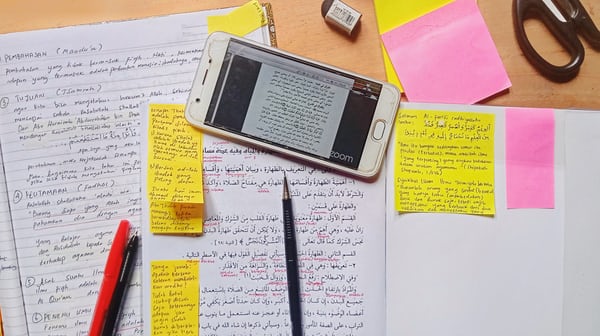Hey everyone,
I hope you are all well and enjoying what this year is bringing you so far. I cannot believe that so much time has passed already! Going into my 2nd semester of year 2, it's safe to say that I have a fair idea of the type of teaching and assessments on offer at the University of Bath. So sit back and read as I help turn your PLA into a PLAN 🙂
Over the years I've experienced a variety of teaching methods, all with different purposes. So let's break them down.
Lectures are typically those for larger groups of people and tend to include a presentation format, with small amounts of engagement. However, through the use of online learning, participation has become more integrated within lecture settings. When in-person, these are usually conducted in lecture halls (as seen below) with various students from different courses.
Seminars are smaller groups, typically the size of an average classroom. Here students will be split into groups of under 10 to discuss the learning and source materials from the previous lecture. This may also be a time to reflect on any difficulties understanding the course content and preparing for assignments.
1-on-1 learning is pretty obvious, but still worth a mention. These typically involve meetings with tutors to discuss course progression and support. Occasionally students may also be able to request additional support from the course lecturer to gain a better understanding of the course content. You can read my blog post about making the most of your tutor for more on this.
With all learning, there are a few things that will really go a long way to help you get the most out of your university teaching experience.
- First off, it is good to know the university layout beforehand, not having to worry about where a lecture hall you've never been to is, can relieve a lot of added tension and stress, allowing you to focus on the lecture preparation instead.
- Another obvious one is to complete any pre-set tasks and get to grips with all of your learning material. This will help you to become a better note-taker, only writing down the information and key points that you do not have access to otherwise.
- A key one I cannot recommend enough is to practice note-taking before you come to the University. This will help you to identify what method (typing, filling out boxes/charts/tables, writing, diagrams etc) works best for you and helps you be more time and space-efficient with your stationery materials.
Now for the nitty-gritty bit, the assignments, the bit that we all fear. Well, fear not, as this blog is here to eliminate that worry. There are many different types of assessments all with different purposes, let's dig a little deeper, shall we.
Coursework is the most elusive of assessment types and can take many forms depending on what the lecturer wants from the assignment. You may be asked to submit an essay, portfolio or casework as evidence of coursework.
The last 2 are fairly simple, a group project is a collaborative assignment, usually lasting a couple of months and on a particular research topic between a group of students and an exam is an individual assessment during timed conditions. I KNOW! Who thought it would be this easy right?
All preparation for these assessments follows the same key steps. It is key for you to ensure early on you know exactly what the assignment is, what it entails, what the lecturer is looking for and the type of format that it needs to be submitted in. Establishing a bunch of different start ideas will help you to explore a variety of other possibilities and help you not to feel stuck if an idea is not going the way you first anticipated. And finally, always significantly research a topic, to ensure that your assignments are heavily backed up with literature.
Also, kudos to anybody who spotted the 3 Friends tv show quotes within this blog!
Until next time, stay safe and keep smiling.
Tia.
Respond






